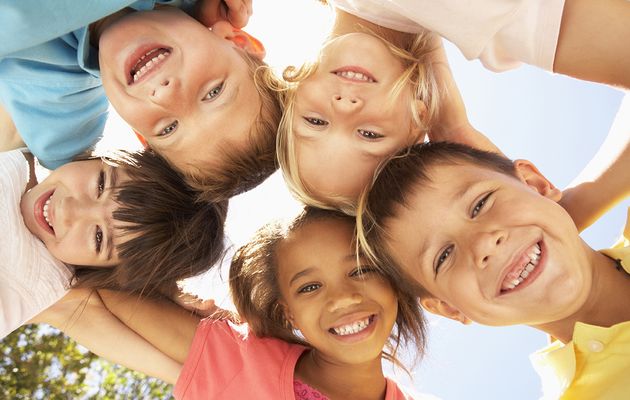The removal of children from their families should never be among the first options to consider.

“The children are afraid when there’s a knock at the door. They fear they’ll be taken away again”, says Jaquline tearfully, in broken Norwegian, recounting her battles with Norwegian Child Welfare Services (known as ‘Barnevernet’) which have been accused of unduly tearing families apart. This is how an article in The Local starts.
“There is a lack of what I’d call the human factor. A lack of empathy, really providing an atmosphere so people can learn … It’s more like police interventions, more like we have to find out what’s wrong with you”, says Norwegian psychologist Einar Salvesen about the Barnevernet in a recent BBC documentary.
According to the rapporteur, Mr. Valeriu Ghiletchi, the Parliamentary Assembly “notably registered its concern about the violation of children’s rights when social services take children into care too rashly and do not make enough effort to support families before and/or after removal and placement decisions”.
Quoting from a 2015 Resolution adopted by PACE, he adds: “These unwarranted decisions usually have a sometimes unintended discriminatory character, and can constitute serious violations of the rights of the child and his or her parents, which are made all the more tragic when the decisions are irreversible (such as in cases of adoption without parental consent).”
The case of the Bodnariu family
The case that prompted the PACE report is the well-known story of the Romanian-Norwegian Bodnariu family. Their five children (including a three-month old baby) were taken into care by the Barnevernet in 2016 based on allegations of corporal punishment.
The circumstances in which this happened were extremely concerning: Two of the children were taken into emergency custody straight from school. After that, all five children were separated from each other and sent to three separate homes across Norway.
The case shocked the international Romanian community which has since organised large global protests. After a great deal of international pressure, the Barnevernet put the children back in the care of their parents.
This is not at all an isolated case. It is just one of numerous examples of cases that have been causing terrible distress for both parents and children across Europe. In order to minimize such situations, state agencies like Barnevernet need to carefully look into and understand the circumstances of each family they are working with – before they decide to step in and separate a child from his or her parents.
The removal of children from their families should never be among the first options to consider.
In support of children and their families
Fortunately there is a clear European regulation on children’s rights and on the importance of keeping them with their families as far as possible. The European Union’s Charter of Fundamental Rights says that “every child shall have the right to maintain on a regular basis a personal relationship and direct contact with both his or her parents unless that is contrary to his or her interests.”
Furthermore, the European Court of Human Rights has also underlined the fact that “the Court takes into consideration the fact that it is an interference of a very serious order to split up a family. Such a step must be supported by sufficiently sound and weighty considerations in the interests of the child.”
The interests of the child must remain a key consideration. Research shows that forcing children into and out of different homes can have damaging, long-lasting emotional and psychological consequences on them.
“I have been very concerned to learn that there have recently been cases where child protection services have taken children away in circumstances where the removal appears to be an overhasty reaction to allegations, rather than a measured decision on the basis of established facts,” says Mr. Ghiletchi.
Recommendations for the Council of Europe
The report soon to be voted on by PACE emphasizes the fact that children have a right not to be separated from their families against their will. But it also recognizes the fact that children have the right to also be protected from all types of violence, abuse and neglect. Under such situations, agencies like Barnevernet can and should take limited action.
The report thus urges PACE to recommend that Member States of the Council of Europe “secure child-friendly processes throughout removal, placement and reunification: this includes guaranteeing full child participation by having properly trained and educated staff speak to and listen to the child, whose views should not only be heard, but also taken into account.”
It also states that “Member States should give the necessary support to families in a timely and positive manner with a view to avoiding the necessity for removal decisions in the first place, and to facilitating family reunification as soon as possible.”
Several other recommendations to ensure the well-being of children are outlined in the report. The fact that the removal of children should only be a measure of last resort – and only be done for a limited amount of time – is especially emphasized.
EDW welcomes PACE’s efforts to review and vote on this report, especially since it seeks to protect the well-being of children and families in the Member States of the Council of Europe. We will keep you informed as to the results of the vote in PACE.
Roxana Stanciu, Executive Director of European Dignity Watch, based in Brussels. Learn more about how this organisation informs, educates, and equips stakeholders in Europe to make a difference in public life, defending freedom, family, and life; visit EDW's website.

Las opiniones vertidas por nuestros colaboradores se realizan a nivel personal, pudiendo coincidir o no con la postura de la dirección de Protestante Digital.
Si quieres comentar o